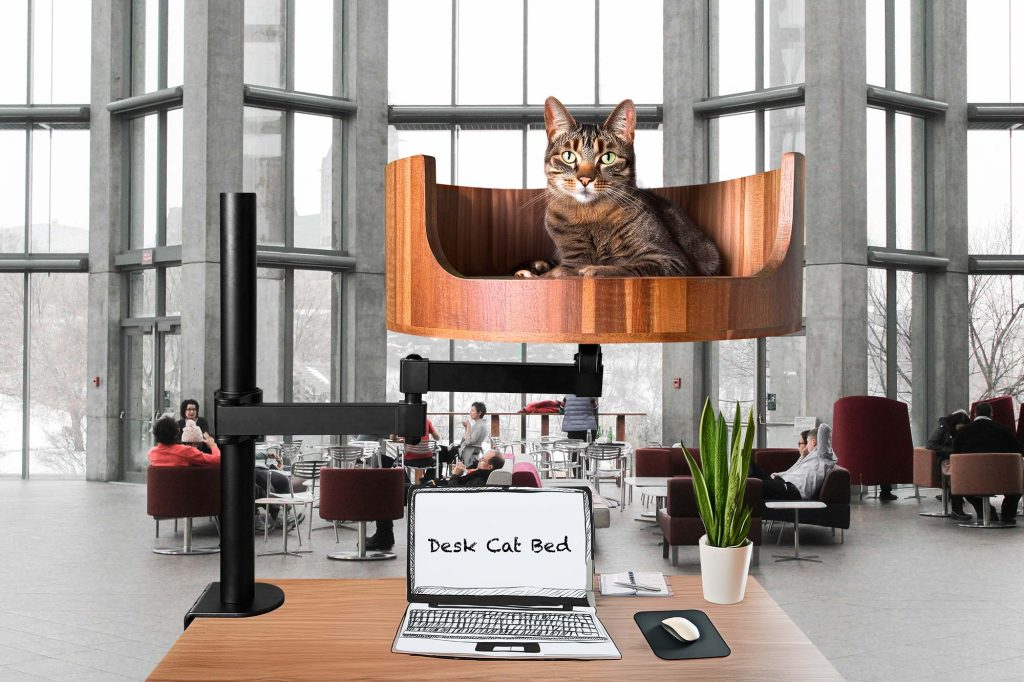Have you ever wondered why your cat seems to have an insatiable appetite, always on the prowl for their next meal? Cats are known for their love of food and can seem to eat nonstop, leaving many cat owners puzzled about their furry friend’s voracious appetite. In this article, we will delve into the reasons why cats eat so much, exploring the factors that drive their constant need for food.
From innate hunting instincts to underlying health issues, there are many reasons why cats may seem to have bottomless stomachs. Understanding your cat’s appetite can help you ensure they are getting the right balance of nutrition and avoid overfeeding or underfeeding. We will explore the biological and behavioral factors that influence a cat’s eating habits, shedding light on why your feline companion may always be on the hunt for food. By gaining insight into your cat’s appetite, you can provide them with the care and attention they need to thrive and maintain a healthy weight.
1. Cats have a strong hunting instinct, which can drive them to eat more food than necessary.
2. Feeding high-quality, protein-rich food can help satisfy a cat’s appetite and prevent overeating.
3. Cats may eat more when they are bored or stressed, so providing mental and physical stimulation is key.
4. Understanding a cat’s individual feeding preferences and habits can help prevent obesity and other health issues.
5. Regular vet check-ups can ensure that your cat’s diet is appropriate for their age, weight, and activity level.
Biological Factors Influencing a Cat’s Appetite
One of the main reasons why cats eat so much is due to their biological makeup. Cats are obligate carnivores, meaning their bodies are designed to thrive on a diet primarily consisting of meat. This natural instinct drives cats to seek out food constantly, as they need a high protein diet to maintain their energy levels and overall health. Additionally, cats’ digestive systems are designed for frequent, small meals rather than large infrequent ones, which contributes to their seemingly insatiable appetite.
Psychological Factors Contributing to Overeating
In addition to biological factors, cats’ appetites can also be influenced by psychological factors. Cats may associate food with comfort or security, leading them to overeat when they are stressed or anxious. This behavior is often seen in rescue cats or those who have experienced trauma in the past. Furthermore, boredom or lack of mental stimulation can also cause cats to eat more than necessary, as they may turn to food for entertainment.
Medical Conditions Impacting a Cat’s Appetite
It’s important to consider that excessive eating in cats could be a sign of an underlying medical condition. Conditions such as hyperthyroidism, diabetes, or even parasites can cause increased hunger and contribute to a cat’s seemingly endless appetite. If your cat’s eating habits suddenly change or if they are continuously overeating, it’s crucial to consult a veterinarian to rule out any potential health issues.
Ways to Manage a Cat’s Appetite
If you’re concerned about your cat’s eating habits, there are several strategies you can implement to help manage their appetite. Providing a balanced diet that meets their nutritional needs can help prevent overeating. Additionally, offering interactive toys or puzzle feeders can provide mental stimulation and prevent boredom eating. Monitoring your cat’s weight and adjusting their portion sizes accordingly can also help regulate their food intake. Ultimately, understanding the reasons behind your cat’s excessive appetite is crucial in ensuring their overall health and well-being.
Frequently Asked Questions
Why do cats eat so much?
Cats are known for their small and frequent meals throughout the day, which can give the impression that they eat a lot. Cats have a natural instinct to hunt for their food, so eating multiple small meals mimics their hunting behavior in the wild.
Is the Desk Cat Nest suitable for overweight cats?
Yes, the Desk Cat Nest can be a great solution for overweight cats as it provides a designated feeding area that encourages portion control and helps monitor their food intake.
Will the Desk Cat Nest help with my cat’s constant begging for food?
Yes, the Desk Cat Nest can help reduce your cat’s constant begging for food by establishing a routine feeding schedule and limiting access to food outside of meal times.
Can multiple cats use the Desk Cat Nest at the same time?
Yes, the Desk Cat Nest is spacious enough to accommodate multiple cats, making it a great solution for households with more than one feline friend.
Is the Desk Cat Nest easy to clean?
Yes, the Desk Cat Nest is designed for easy cleaning with removable and washable food and water dishes, as well as a wipeable surface for any spills or messes.
In conclusion, providing your cat with a comfortable and inviting space, such as the Desk Cat Bed, can help address the issue of why cats eat so much. By giving them a designated area to relax and feel secure, they can feel more at ease and less stressed, which may lead to a decrease in overeating. The Desk Cat Bed not only provides a cozy retreat for your feline friend, but also promotes their overall well-being and health. Investing in this product is a valuable choice that can benefit both you and your furry companion in the long run.


